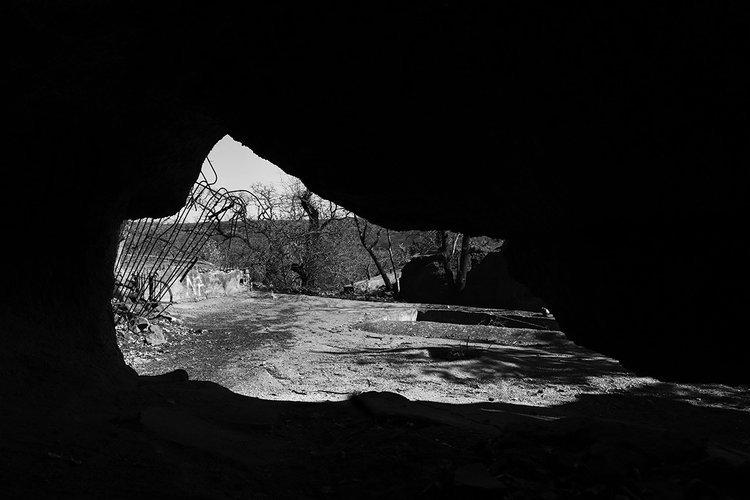Disclaimer (for you King fans):
While I am a fan of Stephen King’s works, I’ve not had the pleasure of reading his 1922 novel. This review does not have fanatical trail offs or references to what may or may not be missing. I will be reviewing this film through the eyes of a standard appreciator of film and its peculiarities. King fangirls (and boys) — you have been warned.
1922’s exploration of gluttonous guilt born from sin takes its sweet time gnawing its way through the increasingly haunted minds of its audience — leaving them with more than enough madness to hear the squeaks of rats clawing their way through the walls for days. Abandoning traditional horror, this slow-burn of a drama takes a page from Edgar Allen Poe’s fatalistically raw piece of literature The Tell-Tale Heart, delivering a psychological tragedy fueled by skillful direction, grim subtleties, and a strong performance that wholeheartedly embodies a man brimming with cold fury and calculated immorality.
Directed by Zak Hilditch — and based on Stephen King’s novella with the same name — 1922 tells the story of a prideful but none-too-successful farmer (portrayed by Thomas Jane) who conspires to murder his wife (Molly Parker) for financial gain. With help from his son Henry (Dylan Schmid), the deed is done, but in the year 1922, the consequences that follow cross the threshold of the James household…and bring nothing but misfortune on its sinful inhabitants.
While the synopsis sounds cliché-ridden, the film is anything but, cleverly weaving a unique direction of storytelling within an already overused plot. Wilfred’s voice-overs became one of the most intriguing aspects of the film, allowing the audience to delve into the analytically off-center mind of a man slowly falling into psychological despair after despair. Combined with the film’s sinister undertones depicted by Mike Patton’s haunting musical score, long-lasting stilled camera shots, and long, hair-raising silences, 1922 raises your anxiety levels.
Hilditch deserves props for his clever execution of the horror in this film, effortlessly inserting suspenseful moments throughout the entirety of the film, delivering refreshing moments of old-fashion scares (no cheap jump scares, mind you) when the audience least expects it. While the terrifying “goods” are few, they have no problem making a long-lasting impression.
1922’s success lies in the film’s commitment to powerful subtleties — the most chilling given by our main character at the beginning of the film: “In 1922, a man’s pride was a man’s land. And so was his son.” A few words here, an uncomfortable stare there, this film forces audiences to question whose lives (if any) are forfeit, while at the same time slowly question Wilfred’s credibility in narrating this tale. Similar to The Tell-Tale Heart’s unnamed narrator, Wilfred’s sanity is the center of critical commentary: Is he imagining all of this? Is he really cursed? The supernatural elements — which are questionably hallucinations — are woven into the film so well that it only adds to the many questions the audience is left with even after the film ends.
Because 1922 is a psychological, character-driven story, the film’s success hinges on Jane’s performance. Thomas Jane is the film. He is more than good at embodying a tough-loving, Old-Testament manipulating father figure as he skillfully persuades his son into thinking that matricide is justified with an analytical coolness that deserves disgust —and a smidge of respect.
Because the film questions everything — from the main character’s sanity to the supernatural elements depicted — some people might not appreciate 1922’s lack of straightforwardness. By the end of the film, few questions are answered because the film implores its audience to contemplate everything from beginning to end. What this film lacks in clarity it does ten-fold in intelligence, compelling narration and haunting imagery.
1922 is not just a psychological horror-drama. It’s intellectual, character-driven piece that influences the minds of its audience in more ways than fright and simple enjoyment. As a film that illustrates with powerfully dark visuals and strong, yet brief moments of conversation the manifestation of guilt around a psychologically-questionable main character, 1922 is one of the best King adaptations to date and deserves praise for its respect to old-fashioned horror techniques rarely used in horror films today and its knack at making a memorable impression.
You can stream 1922 on Netflix. Because of its thought-provoking characteristics, I recommend watching this film when you have enough time to pause and reflect.






Jacky Lawrence • Nov 2, 2017 at 2:38 am
Regarding your disclaimer, I honestly wish this were how novel-based films were reviewed regardless if they were read prior. My feeling is that the source material, or comparisons thereto, are irrelevant. Films should be critiqued and judged on their own merit, whether or not they are an adaptation.
Jacky Lawrence • Nov 2, 2017 at 2:38 am
Regarding your disclaimer, I honestly wish this were how novel-based films were reviewed regardless if they were read prior. My feeling is that the source material, or comparisons thereto, are irrelevant. Films should be critiqued and judged on their own merit, whether or not they are an adaptation.
Jacky Lawrence • Nov 2, 2017 at 2:38 am
Regarding your disclaimer, I honestly wish this were how novel-based films were reviewed regardless if they were read prior. My feeling is that the source material, or comparisons thereto, are irrelevant. Films should be critiqued and judged on their own merit, whether or not they are an adaptation.
Jacky Lawrence • Nov 2, 2017 at 2:38 am
Regarding your disclaimer, I honestly wish this were how novel-based films were reviewed regardless if they were read prior. My feeling is that the source material, or comparisons thereto, are irrelevant. Films should be critiqued and judged on their own merit, whether or not they are an adaptation.